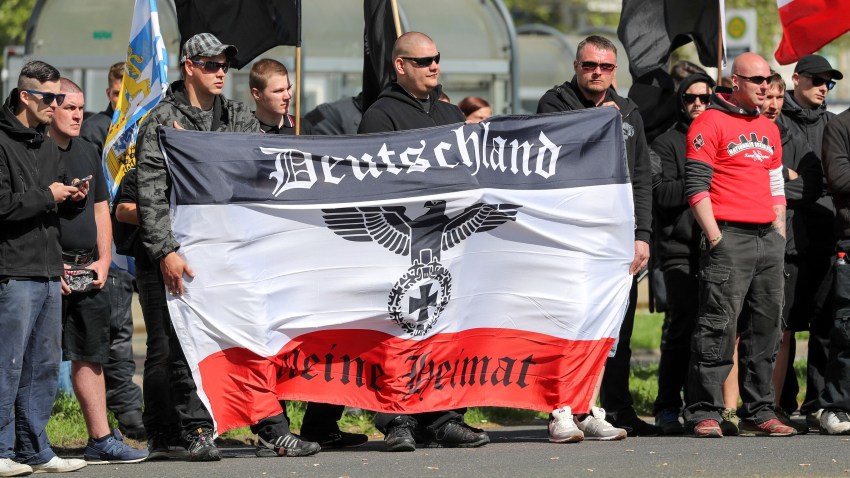In 1990s Germany, the deep social fault lines over historical memory were visible in the racks of every newspaper kiosk, where liberal newspapers were sold alongside copies of “Landser” and other magazines that churned out crude tales of German military heroism during World War II. The existence of such publications was initially a shock for me when I arrived in the country as a pre-teen. But upon encountering them during a visit, my Ukrainian grandfather—who had witnessed Nazi brutality firsthand—simply growled, “The idiots who buy this wouldn’t have lasted five minutes.” Though my grandfather’s reaction was shared by many Germans of his generation, there were enough others willing to claim that the “Fuhrer didn’t really know” or that “it wasn’t as bad as they say” to sustain a counternarrative that was also embraced by some younger people.
Over the past three weeks, the vicious debate around claims that Hubert Aiwanger—the leader of the Freie Wahler, or FW, party and deputy head of the Bavarian government—circulated antisemitic pamphlets as a high schooler almost 35 years ago illustrates how shallowly these tensions are buried in Germany and how quickly they can resurface. The firestorm unleashed by the revelations on Aug. 25 initially seemed enough to end Aiwanger’s political career. With campaigning underway for Bavaria’s regional elections on Oct. 8, the incident caused serious concerns among the FW’s senior coalition partners in the Christian Social Union, or CSU, about the effect it would have on its own campaign.
Yet despite demands from the center-left Social Democratic Party and Greens as well as from within the CSU for Aiwanger’s removal, Bavaria’s regional president and head of the CSU, Markus Soder, opted to keep him and the alliance with the FW in place. By the beginning of September, Aiwanger’s dual strategy of deflecting blame for the incident on his own brother while furiously accusing the daily that published the reports—the Suddeutsche Zeitung—of pursuing an unjust vendetta had paid off. By contrast, Soder’s desperation to avoid a coalition with the Greens has given the staunchly right-wing FW leverage over the CSU in ways that will have profound effects on Bavarian politics after the elections.

